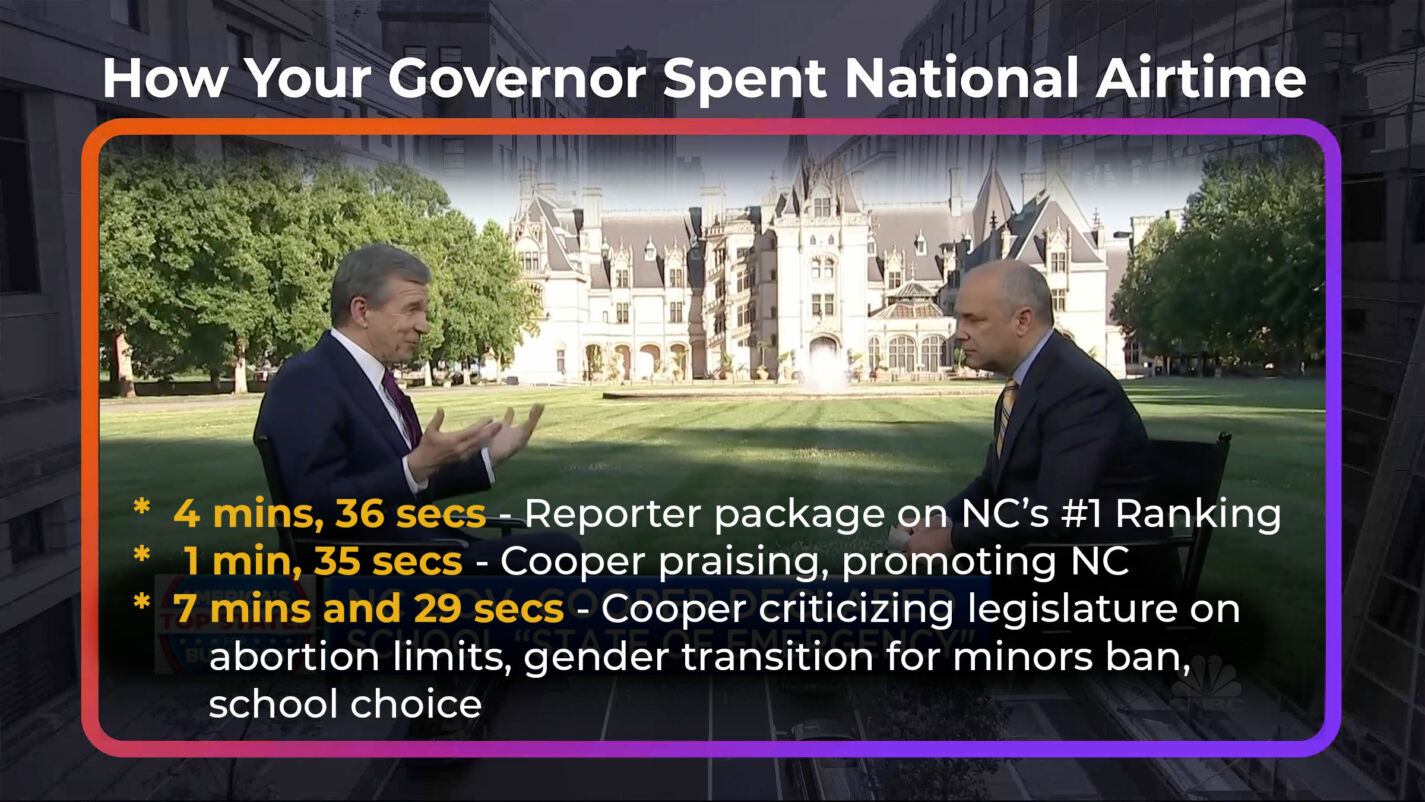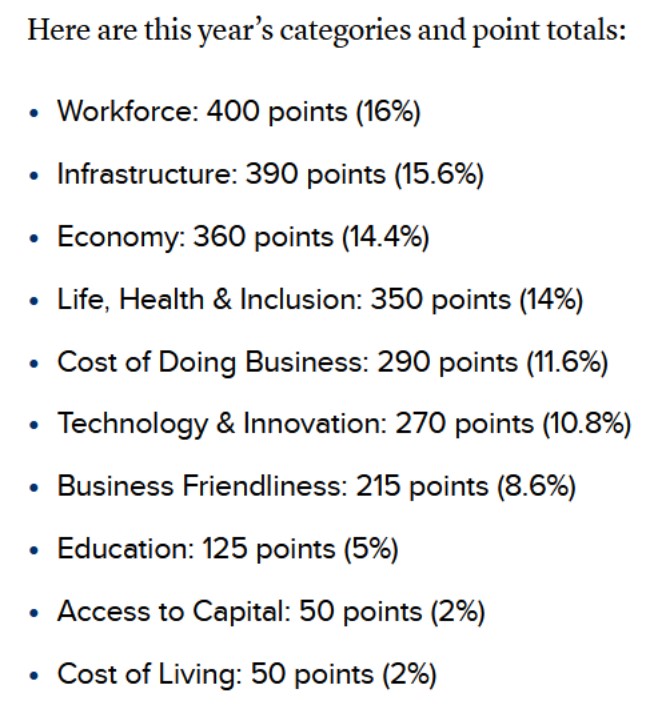For the second year in a row, North Carolina was named the No. 1 state for business by CNBC. And, naturally, Democratic Gov. Roy Cooper was selected to accept the accolades.
It was a bit like if a group got first prize in the school science fair, and that one kid who didn’t really bother to show up to the work sessions — and who fought all the best ideas and dragged things out when they did happen to show up — was called on by the teacher to explain their success.
Worse than that, it’s as if that student, given the opportunity to explain the project they had nothing to do with, blasted all the kids who actually did do the work.
Watch below as Cooper spends the bulk of the interview talking about how awful the legislature (those who actually were responsible for the state’s business success) are.
For those who want a breakdown of how much of the interview Cooper spent bashing the conservative policies of the legislature, here you go.

Keep in mind: all the categories where North Carolina performed the best — the economy, the workforce, access to capital, technology and innovation, education — are areas where Republicans in the legislature have vastly different priorities than Cooper, and where the ideas of the former have been passed into the law despite the most active veto pen of any governor in state history.
Did Cooper work with Republicans on tax reform? Reducing regulations on business? Providing more choices to families regarding their children’s education? No, no, and no.
In his comments, Cooper especially focused on the state passing an abortion ban and bills regarding experimental youth sex change procedures and males in female sports. He also made sure to bring up his self-declared “state of emergency” around education (declared because he isn’t a fan of school choice).
CNBC deserves some of the blame for this focus, as well, since the lowest ranking they gave North Carolina was for our “Life, health, and inclusion.” This category basically comes down to how left-leaning the state is on social policy, similar to a DEI or ESG analysis.

North Carolina had the third best economy, but we were 34th in this category, and as you can see from how CNBC weighted the scores, “Life, health, and inclusion” contributes as much to the equation as a state’s economy does.

In fact, the only states who had a better economy than North Carolina were Florida (No. 1) and Texas (No. 2). But their “Life, health, and inclusion” ratings were so low that neither of them were in the top five states for business.
CNBC made a big deal about Texas falling out of the top five (all the way to No. 6) and said it in large part had to do with them being dead last in the “how-liberal-are-you” category, citing violent crime, bills “targeting the LGBTQ+ community,” stricter abortion laws, and outlawing DEI offices on state-funded colleges. Turns out the DEI category dings you for banning DEI.
It was a similar story for Florida, who had the No. 1 economy but was 41st in the “Life, health and inclusion,” so they only ranked No. 8. Don’t be surprised if North Carolina follows the path of Texas and Florida next year, after some recent abortion and trans-related bills that we will likely be penalized for. Don’t be fooled. It won’t suggest that our economy has slowed or that we are a worse place for business, just that they have a bias, arbitrary weighting system.
The assumption, I suppose, is that businesses are uniformly on the far left, so any conservative law is de facto anti-business. While there are some big businesses who have made gestures in this direction, in a post-Bud Light world, many are quickly reversing course. And an economy doesn’t just boom from big business anyway. There are also the countless small businesses that relocate to greener pastures, many of which are owned and operated by those with conservative values.
The weighting seems to be specifically created to acknowledge which states businesses are moving to and where the economy is booming, while also creating a category so that the struggling blue states can get some extra credit points. But as both Cooper and the interviewer acknowledged, businesses don’t seem to be leaving states like North Carolina, Texas, and Florida for states like Vermont (which was No. 1 in “Life, health and inclusion” but No. 39 in economy and No. 40 in “Cost of doing business”).
Vermont is so “inclusive” that Ben & Jerry’s, one of the state’s only notable companies, is calling, not to bring in more businesses, but to pack it all up and return the land back to the Native American tribes. Ironically, one of the local tribes accepted the offer and asked when they can take over the Ben & Jerry’s headquarters.
From all available evidence, if Cooper had been in charge of the project, North Carolina would probably look a lot more like Vermont than a booming, award-winning state.